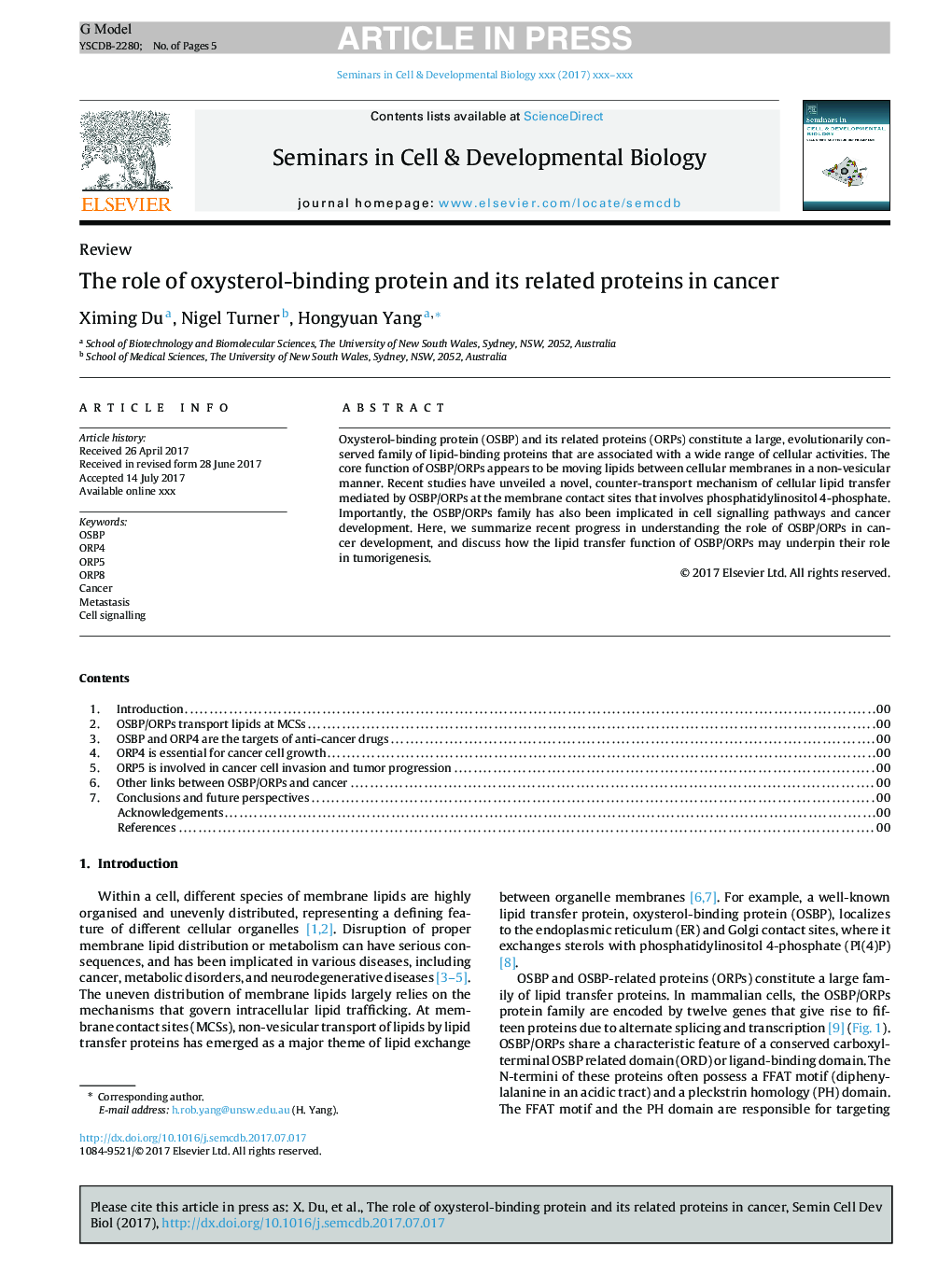| Article ID | Journal | Published Year | Pages | File Type |
|---|---|---|---|---|
| 8479532 | Seminars in Cell & Developmental Biology | 2018 | 5 Pages |
Abstract
Oxysterol-binding protein (OSBP) and its related proteins (ORPs) constitute a large, evolutionarily conserved family of lipid-binding proteins that are associated with a wide range of cellular activities. The core function of OSBP/ORPs appears to be moving lipids between cellular membranes in a non-vesicular manner. Recent studies have unveiled a novel, counter-transport mechanism of cellular lipid transfer mediated by OSBP/ORPs at the membrane contact sites that involves phosphatidylinositol 4-phosphate. Importantly, the OSBP/ORPs family has also been implicated in cell signalling pathways and cancer development. Here, we summarize recent progress in understanding the role of OSBP/ORPs in cancer development, and discuss how the lipid transfer function of OSBP/ORPs may underpin their role in tumorigenesis.
Keywords
Related Topics
Life Sciences
Biochemistry, Genetics and Molecular Biology
Cell Biology
Authors
Ximing Du, Nigel Turner, Hongyuan Yang,
